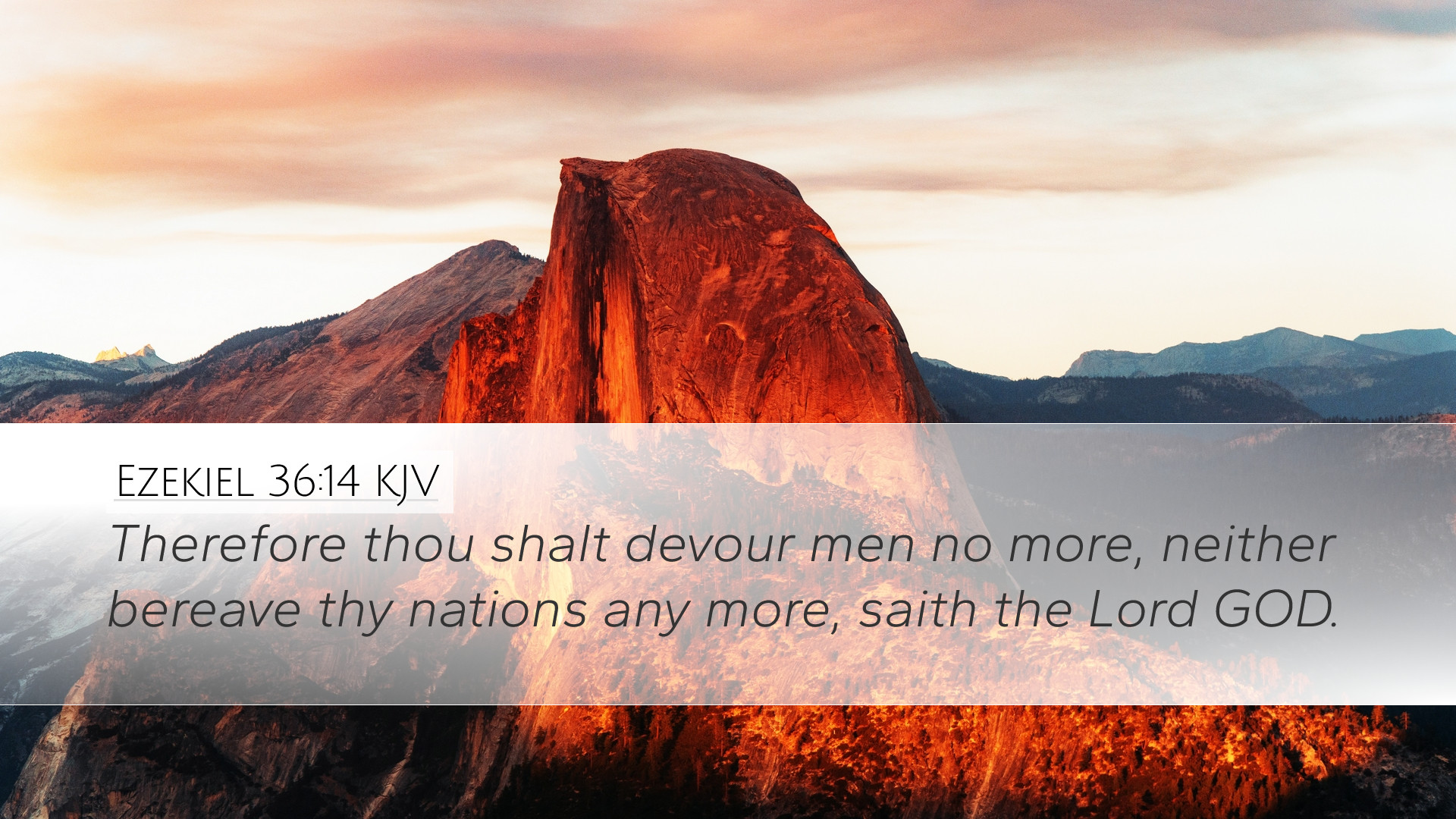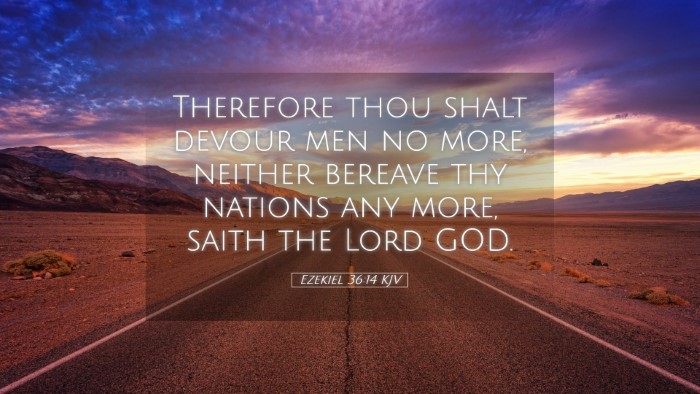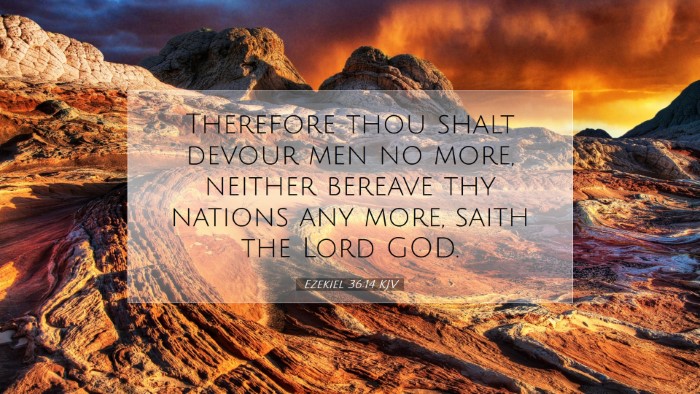Ezekiel 36:14 Commentary
Verse Context: Ezekiel 36:14 states, “Therefore you shall no longer devour men; nor make your nation stumble any more,” declares the Lord God. This verse is situated within a larger context of restoration and renewal for Israel following their judgment and exile.
Scholarly Insights
The verse emphasizes God's intention to restore His people and rebuke the surrounding nations that have taken advantage of Israel's downfall. It marks a transition from judgment to hope and renewal.
Historical Background:
Matthew Henry: In the context of the Babylonian exile and its aftermath, Henry notes that the nations surrounding Israel took great joy in its downfall and injustice. The prophetic message conveys a direct command from God to cease the oppression of His people.
Albert Barnes: Barnes highlights the significance of “devour men,” indicating a state of viciousness against Israel. The prophecy serves both as a reassessment of God's promise to His covenant people and a call to justice against oppressors.
Adam Clarke: Similarly, Clarke points out the metaphorical implications of "devouring." He discusses how the action reflects an insatiable hunger for power and dominance over the covenant community, exacerbating stratification among nations.
Theological Implications:
- Divine Justice: Each commentary brings forward the theme of divine justice, emphasizing that God's long-suffering does not overlook evil but ultimately leads to restitution.
- Restoration of Israel: The central theme remains the promised restoration of Israel, showing that their sufferings are not in vain, and God's sovereignty prevails even in times of judgment.
- Human Responsibility: The call to not devour signifies a moral imperative, stressing human responsibility even amidst geopolitical turbulence.
Application for Readers
The passage challenges pastors and theologians to reflect upon the nature of justice, restoration, and the relationship between God and His people. It functions as a powerful reminder that God hears the cries of the oppressed, and His plans are ultimately for restoration.
Practical Lessons:
- Hope in Restoration: For students and scholars, the assurance of renewal in God's promises provides a platform to study the character of God in light of adversity.
- Vigilance Against Oppression: This verse compels believers to be vigilant against systems and structures that devour the weak and marginalized.
- Encouragement to Intercede: It urges an attitude of intercession and advocacy for those who face injustice, reinforcing the belief that God acts on behalf of the oppressed.
Conclusion
In summary, Ezekiel 36:14 encapsulates powerful themes of justice, responsibility, and restoration. The insights gathered from public domain commentaries provide a multi-faceted understanding that is deeply meaningful for pastors, students, and scholars alike. As we engage with this text, let us be reminded of God's unwavering commitment to His people and the call to participate in His redemptive work in the world.


